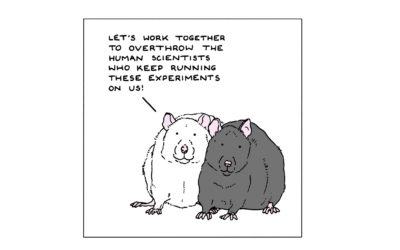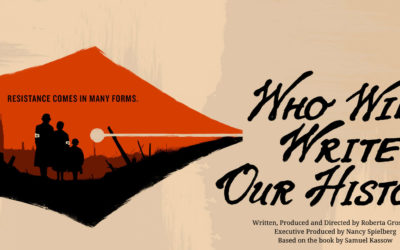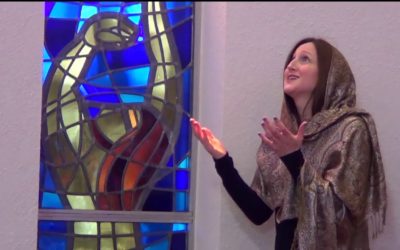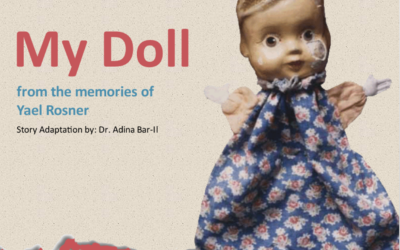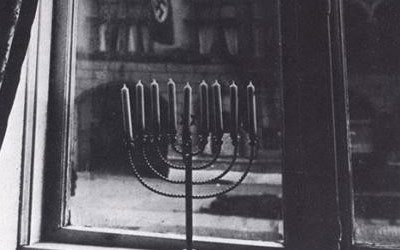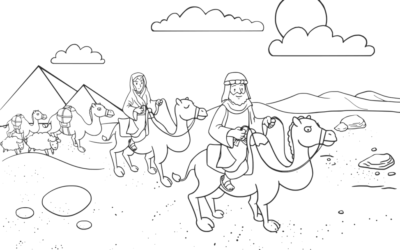Our Blog
Familiarity Breeds Empathy
This Valentine’s Day, we can learn about loving our neighbors from watching how rats do it. [Redirects to the Times of Israel.]
Who will write our history?
It distresses me how long it has taken for us to realize what Emanuel Ringelblum recognized in 1940 at the very inception of the Warsaw ghetto: unless we Jews tell our story, the story of the Holocaust will be told by the perpetrators. In the experiences of many of us, the story of the Holocaust has been dominated by Nazi propaganda and Nazi thinking. [redirects to the Times of Israel.]
Let the Light Shine on: Reassessing God’s role in the Holocaust
What was God’s role in the Holocaust? Was God a perpetrator, a bystander, or a savior? Many of us have grappled with these questions: Where was God during the Holocaust? How could a God who loves us let such a thing happen? [redirects to the Times of Israel]
Familiarity Breeds Empathy
This Valentine’s Day, we can learn about loving our neighbors from watching how rats do it. [Redirects to the Times of Israel.]
Who will write our history?
It distresses me how long it has taken for us to realize what Emanuel Ringelblum recognized in 1940 at the very inception of the Warsaw ghetto: unless we Jews tell our story, the story of the Holocaust will be told by the perpetrators. In the experiences of many of us, the story of the Holocaust has been dominated by Nazi propaganda and Nazi thinking. [redirects to the Times of Israel.]
Let the Light Shine on: Reassessing God’s role in the Holocaust
What was God’s role in the Holocaust? Was God a perpetrator, a bystander, or a savior? Many of us have grappled with these questions: Where was God during the Holocaust? How could a God who loves us let such a thing happen? [redirects to the Times of Israel]
Our history can become our legacy
If the only stories we learn are Anne Frank’s and Elie Wiesel’s, then we will have a very shallow understanding of the Holocaust. There is a richness and a visceral connection to the stories of Frank and Wiesel, but these are but two among a galaxy of stories that comprise the individuals who experienced the Holocaust. [redirects to the Times of Israel]
Teaching the lessons of the Holocaust through storytelling, not allegory
Stories are the bounty of Jewish culture. The Torah builds from our origin with history and lessons for living and dying. If the Torah is a tree of life, then storytelling is its roots. We teach our values to our children through the stories of our ancestors. What, then, do we do when we need to tell stories that are difficult to hear? How do we apply our tradition of storytelling to the story of the Holocaust? [Redirects to the Times of Israel]
What Chanukah teaches us about Holocaust Remembrance
As Chanukah reminds us, Jews are no strangers to persecution. We have been fighting for our right to exist since the beginning of our recorded history. As we say at Passover: “In every generation, there are those who wish to destroy us.” A list of those who’ve tried would be long: Pharaoh, Amalek, Nebuchadnezzar, Haman, Antiochus, Caesar, Torquemada, to name only some. [Redirects to the Times of Israel.]
Why I teach the Holocaust in Churches
Holocaust education needs to be different in a church than in a synagogue. Although we like to think of Christians and Jews as similar, there are fundamental differences in our background knowledge of and emotional connection to the basic elements of the story of the Holocaust. These fundamental differences change how the story is heard, and therefore, how the story should be told. [Redirects to the Times of Israel.]
Love is stronger than hate
In the shadow of the 80th anniversary of Kristallnacht[1], an attack on a synagogue is particularly chilling. But this was not Kristallnacht. When the Tree of Life synagogue in Pittsburgh was attacked, people from all over poured in to help. In fact, as overwhelming as the grief and fear of the shooting was, the love in response has been almost more so. [redirects to the Times of Israel]
Lessons of the Holocaust: Lock the door or welcome the stranger?
“Why do we need to teach the Holocaust?” This week, as we mark the first yahrzeit of the eleven people murdered at the Tree of Life Synagogue in Pittsburgh, I want to explore this question from a different angle, an angle of hopeful action. [Redirects to the Times of Israel]
Can we just color camels? Do we need to teach the hard stuff?
Can’t religious school be just about coloring camels from Torah portions? Do we have to teach the hard stuff? Many religious school education directors have fielded questions along these lines from concerned parents.
In classic Jewish fashion, the best answer is another question: How do we want our children to learn about the Holocaust? [redirects to the Times of Israel]
Subscribe for More Great Articles!
Join our mailing list to get notified about new blogs and upcoming events.

